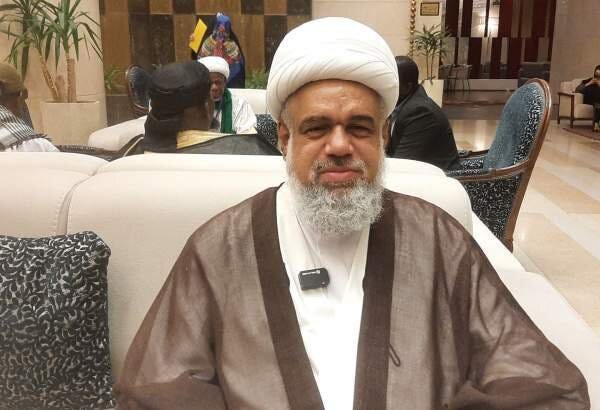The Flag-Bearer of Guidance
Reflections on Leadership, Unity, and the Duty of the Believers
Sheikh Abdullah al-Daqqaq, a respected Bahraini scholar, recently offered heartfelt words about the trials faced by the Muslim Ummah. His reflections are not limited to politics or borders — they speak to something much deeper: the need for unity, vigilance, and trust in divine leadership.
Standing Against Injustice
Throughout history, aggressors have sought to impose their will on the weak. Yet Islam teaches us that injustice is never permanent. The Quran reminds us:
“Do not think Allah is unaware of what the wrongdoers do. He only delays them until a Day when eyes will stare in horror.”
(Quran, Surah Ibrahim, Chapter 14, Abraham, Verse 42)
Sheikh al-Daqqaq warns that silence in the face of oppression is dangerous. When the fire of injustice burns one nation, it will eventually spread if left unchecked. For believers, this means that the suffering of our brothers and sisters — whether in Gaza, Yemen, or anywhere in the world — is a test of our conscience and solidarity.
The Supreme Leader as a Flag-Bearer
In this context, the scholar described Iran’s Supreme Leader as the flag-bearer of Islamic unity. For him, this leadership represents more than politics; it is a spiritual symbol. A reminder that the Ummah must rally around truth, faith, and steadfastness in times of trial.
Sheikh al-Daqqaq even prayed that this banner of resistance and unity will one day be handed to the awaited Imam Mahdi (AS) — when justice will fill the earth as it is now filled with injustice.
The Role of the Believers
The real message is not only about leaders, but about us. Each believer has a role:
To stand awake and aware in an age of distraction.
To strengthen bonds of unity rather than division.
To defend truth with words, actions, and prayers.
To trust that God’s promise of victory for the oppressed is true.
As the Quran says:
“And We desired to show favour to those who were oppressed in the land, and to make them leaders and inheritors.”
(Quran, Surah al-Qasas, Chapter 28, The Stories, Verse 5)
Hope, Patience, and Resolve
The challenges before the Ummah are heavy, but they are not without hope. Sheikh al-Daqqaq reminds us that every act of resistance, every voice raised against oppression, and every hand lifted in dua brings us closer to liberation.
Faith demands patience, but not passivity. It calls for strength, but not arrogance. It teaches us to keep our hearts anchored in the belief that justice belongs to God and that His light cannot be extinguished.
A Call to Spiritual Wakefulness
The words of this Bahraini scholar are ultimately a call to wakefulness. To resist despair, to unite under the banner of truth, and to remember that leadership in Islam is not about power but about guiding hearts to God.
In his vision, the Supreme Leader today serves as a symbol of steadfastness, but the greater hope is for all believers to rise to their responsibility — until the flag of justice is carried by the promised saviour, Imam al-Mahdi (AS).
Reference: ABNA


